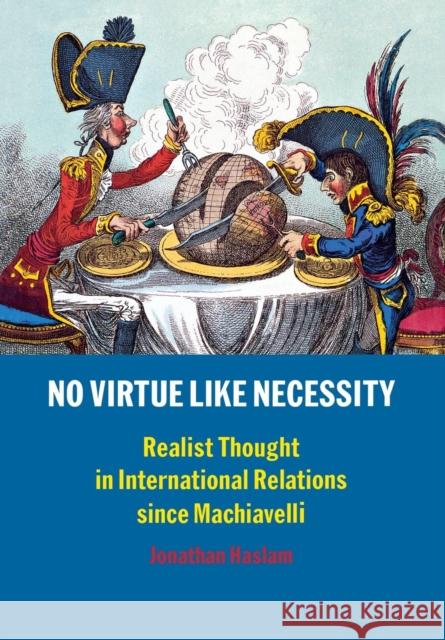No Virtue Like Necessity: Realist Thought in International Relations Since Machiavelli » książka
No Virtue Like Necessity: Realist Thought in International Relations Since Machiavelli
ISBN-13: 9780300205008 / Angielski / Miękka / 2013 / 272 str.
This wide-ranging book is the first comprehensive history of the development of realist ideas in international relations throughout the last five hundred years. Jonathan Haslam focuses on the emergence and relevance of realist (or statist) thought, showing how it has shaped political thinking and international events since Machiavelli's time. Haslam draws on an array of original texts in various European languages to illustrate the views of rulers and thinkers, to reveal how wars and other crises affected the thinking of those who experienced them, and to locate realist thinking squarely within the history of political and economic thought. The author explores four themes relating to modern era international relations: reasons of state, the balance of power, the balance of trade, and geopolitics. He contrasts realist ideas with universalist alternatives, both religious and secular, which were based on a more optimistic view of the nature of man or the nature of society.Realist thought never attained consistent predominance, Haslam demonstrates, and the struggle with universalist thought has remained an unresolved tension that can be traced throughout the evolution of international relations theory in the twentieth century.











